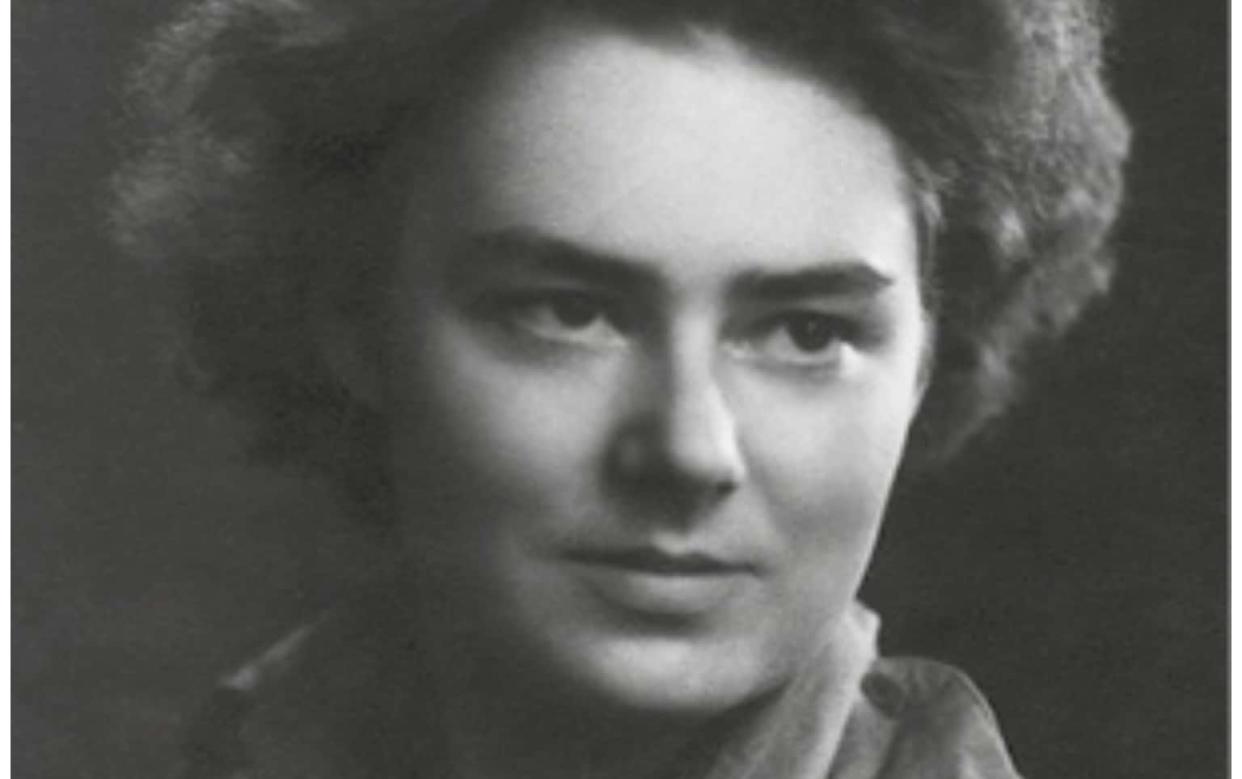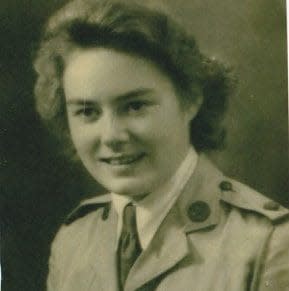‘The war bumped me out of my sheltered life and made me feel more important than ever before’

We came from a very military-minded family in Lancashire. Between the wars, my father was in the Territorial Army and a favourite game was called “bombing the Germans”: we’d throw stones into a quarry full of old metal contraptions – a direct hit would send up a tremendous clang! But what began as child’s play morphed into something altogether more serious with the outbreak of war. By the time I left school in 1942, my father, Colonel Carey Owtram, was already missing in the Far East and my sister, Pat, was a petty officer in the Wrens. I was stuck at home, age 17 and very frustrated.
I applied to the Wrens but they only had jobs as cooks and orderlies. I wanted something meatier than that and my godmother mentioned the First Aid Nursing Yeomanry (Fany). I’d never heard of them, but it turned out to be a military organisation that recruited “the right sort of girls” and they took themselves very seriously. The Fany was established in 1907 with the aim of rescuing men from the battlefield – early members had to own a horse! By the time I joined on my 18th birthday in 1943 they’d extended their reach and were involved with the SOE – Special Operations Executive – which dropped agents into occupied Europe.
There was an interview at Fany HQ in Wilton Place, London, with some very fierce women. I was confused at the end when they asked me if I liked crosswords; I thought they’d run out of things to talk about. In fact the question was deliberate, so it was lucky I’d spent many hours puzzling away with my grandfather as a child.
Two weeks of basic training in Overthorpe Hall, Banbury, was followed by a return to Fany HQ where we stayed in dormitories. Girls like me who’d been to boarding school fared better than some of the others who got very homesick. I was trained to be a SOE code and cipher officer and learnt several basic coding methods but, before I could start my job, I had to sign the Official Secrets Act. I felt more important than ever before in my life.
In late 1943, I began work inside a spartan office in SOE’s Baker Street headquarters where I applied pencil to paper. Messages from overseas agents arrived randomly via teleprinter, encrypted with unique poem codes. When sending these communications agents had to work very fast – if an enemy’s direction finder caught them they were dead – so there were plenty of mistakes which made the messages hard to decipher.
I was very good at deciphering these “indecipherables” and became team leader – apparently girls just out of the classroom were some of the best with Morse and codes. Then I was offered the chance to go abroad where Fany were needed to support resistance movements. I had no idea where I might be sent but begged my mother for permission – girls needed a letter from a parent before they could serve abroad. Overseas postings came with promotion and I boasted like mad to my little brother when I clinched mine: “I am an officer now with a pip (red) on each shoulder. I’m an ensign (= 2nd Lieut). I hate leaving you darling but it does seem rather a pity to miss seeing all the things I shall see and doing all the things I shall do.”
Christmas 1943 and I was getting ready to leave. By now we knew that Father was in a Japanese prisoner-of-war camp; contact was limited to sporadic tiny Red Cross postcards and we weren’t sure if he was still alive. It was worse for Mother who was reluctant to let me go, but I couldn’t wait. The war had bumped me out of my sheltered life and the Fany, with its elite status, offered exciting overseas opportunities that weren’t available to girls in the regular female army (Auxiliary Territorial Service).

In January 1944, I was travelling on MV Stirling Castle (an ocean liner) with Mother’s evening dress in my kitbag. We shed our convoy and slipped into the Mediterranean; Europe was pitch black except for one light on Gibraltar but to the south lay a glittering North African coast with Tangier all lit up like a Christmas tree. We were heading to Egypt.
I am so grateful that my mother and sister kept all my letters – how young I sound in them! From Cairo, I informed “Darlingist mummy’ of all my escapades: visiting pyramids in moonlight, attending Anglican Communion” in the local cathedral and feeling “awfully lucky only meeting nice people and I am beginning to feel more sure of myself”. That was all I could tell her; at work I was shift leader in a job with life and death implications. I had extraordinary responsibility for an 18-year-old but I wasn’t allowed to breathe a word about what I was doing. Initially we were communicating with underground agents in Greece and were given information on a need-to-know basis.
By March, I’d been transferred to southern Italy, which replaced Cairo as the co-ordination point for Balkan resistance. It was my first time in an aeroplane and the pilot invited me into the cockpit – there were advantages to being a woman. I was promoted again and in charge of the traffic supporting Josip Tito’s partisans in Yugoslavia. The pressure was huge; I was playing with codenames on a typewriter, in a process that reduced the details of a country to machine guns and ammunition, medical supplies and food drops. Agents could be killed at any moment. I dreaded hearing the worst.
We were billeted in a little house near Torre a Mare in Puglia; the locals were very friendly. There were spontaneous operas and beautiful wild flowers, but Italy was a war-ravaged country. Letters to my sister Pat lay bare the stress: “Do you ever find for no reason at all you get pathetically depressed and everything is just grey and dreary and not even black?”
The Fany worked shifts and I made the most of my free time in the mess and at the military club. I smoked and drank, telling Pat “I love whisky, there is a bottle in my wardrobe now”. I was desperately worried about my father – “I do so hope he comes back but I don’t think now I really believe he will anymore” – and several male friends were killed fighting in the north of Italy; “It does turn one’s insides over when friends get killed like that”. Still a teenager, I found the Allied servicemen hard to control: “The trouble with people here is they think they are entitled to kiss you after one dance and I don’t agree.”

By April 1945, the end was in sight. I attended numerous farewell parties, was posted further north and followed the news in the Union Jack (British Services news sheet). I could sit down and howl with relief. I can hardly remember “no war” but I suppose it is possible. Despite the jubilation I was very worried about returning home, writing to Pat that “being a Fany in England after this would be grim” but likewise “to sit in an office or in a bank or somewhere would be hell”. After all the excitement and pressure, what were girls like me supposed to do in post-war Britain?
I travelled back to England on a troopship from Naples. The best thing about being back at home was the prospect of seeing Father again. There was a grand reunion in Lancashire in October 1945, and photographs of me in uniform next to my very thin dad. The last time we were together I was just a school girl; a lot had changed. Father did not approve of girls drinking whisky and no one asked me about my war. As I had predicted, life felt very flat. Within a year I’d returned to Italy as a clerk with the Allied Commission in Rome. The war gave me the travel bug and I’ve never lost it.
As told to Tessa Dunlop
Jean Argles (nee Owtram) is one of 17 women featured in Army Girls: The secrets and stories of military service from the final few women who fought in World War II by Tessa Dunlop (Headline), which is out now. Buy in hardback for £20 at books.telegraph.co.uk or call 0844 871 1514


